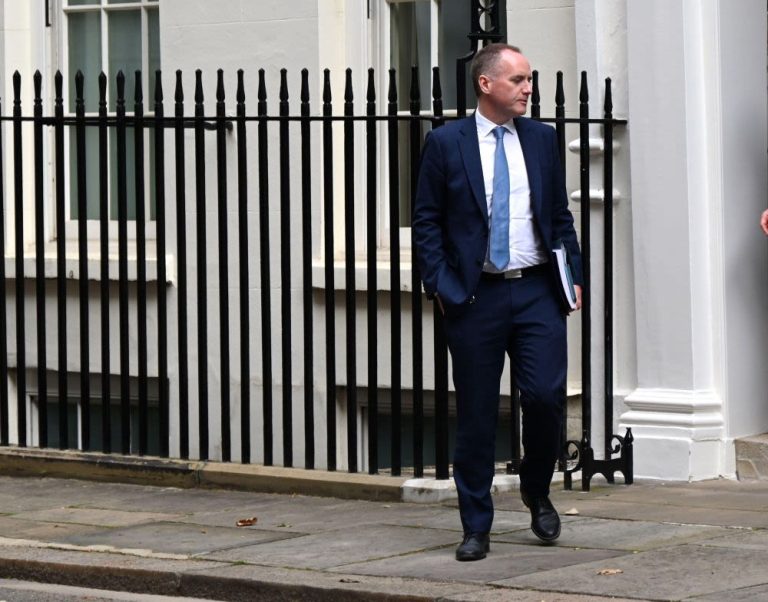
Conservatives’ silence on the economy “distressing”, says ex-Cabinet minister
In a stark warning to his own party, Kit Malthouse MP, former Cabinet minister and representative for North West Hampshire, has lamented that the Conservatives “stopped talking” about economic policy years ago. Speaking to PoliticsHome, Malthouse described the shift as “distressing”, arguing that market and fiscal debate have all but vanished from Tory discourse.
From economic crusade to awkward embarrassment
Malthouse recalled his early days in the 1980s when economic strategy was at the heart of Conservative identity. “Back then, the party lived and breathed economic reform,” he said. “We realised society’s well-being flows directly from a healthy economy. Getting that model right was critical.”
Today, however, financial matters are met with awkward silences in Cabinet discussions. “When I raised economic issues in government meetings, it felt like people looked embarrassed,” Malthouse continued. “There’s no sense of ownership—no enthusiasm for shaping economic policy.”
Warning of a “doom loop” of debt outpacing growth
The Tory backbencher sounded the alarm on Britain’s fiscal trajectory, describing a “doom loop” in which public debt is growing faster than GDP. “If you look at the numbers, borrowing is rising while economic output stagnates. That cannot continue indefinitely,” he warned. Malthouse urged the government to re-embrace prudence, tighten fiscal rules and avoid loosening spending targets.
He suggested that, as Chancellor, he would refocus on debt control and impose clear thresholds for borrowing. “We need guardrails in place—mechanisms that automatically rein in spending when debt crosses a certain level. Otherwise the markets will force us to act under far worse conditions.”
Risk-for-reward: the lifeline of UK innovation
One of Malthouse’s key prescriptions to revive growth is a “risk-for-reward” mindset. He highlighted the UK’s strength in life sciences, noting: “We’re brilliant at discovering new drugs and therapies, but terrible at scaling them into global businesses.”
He pointed to the need for venture capital and patient investment to stay on home soil. “Entrepreneurs innovate here, then go abroad to raise capital. We lose both the industries and the jobs. We must create tax incentives and funds that reward high-risk research.”
- Establish government-backed life sciences investment vehicles;
- Offer R&D tax credits tied to job creation and domestic manufacturing;
- Streamline grants for early-stage biotech startups.
A single consumption tax to simplify the system
Malthouse also proposed a radical overhaul of the UK tax code, advocating a “single consumption tax” to replace multiple levies. “Our tax system has become an arms race of exemptions and carve-outs,” he said. “Each new relief spawns more complexity, and the average person can’t navigate it.”
His vision is a larger VAT-style charge, levied on all spending, coupled with the abolition of income tax bands, national insurance, and many indirect levies. In practice:
- Consumers pay tax only when they spend rather than on earnings or savings;
- Savers and investors face no direct levy, encouraging capital formation;
- Businesses benefit from a predictable, transparent tax basis.
According to Malthouse, this approach would make tax compliance voluntary—“you only pay what you consciously choose to spend”—and could reunify the system under a single headline rate.
Building momentum ahead of the Party Conference
With the Conservative Party Conference looming in October, Malthouse plans to press his case on the conference floor, aiming to rally fellow MPs behind his ideas. He claims the party’s “high command” has shown interest in both the trunk-stable fiscal approach and the consumption-tax blueprint.
Now on the backbenches, Malthouse enjoys the freedom to “speak out in ways I couldn’t as a minister”. He intends to use that platform to reignite public and internal discussion on the economy, shifting the focus from short-term politics back to long-term prosperity.
Re-centering economic debate
In Malthouse’s view, restoring the economy to the centre of Conservative politics is critical to the party’s future electoral success. “If we don’t have a clear, coherent model for growth and debt management, we’ll be fighting each other over social issues while voters ask: Who will keep my money safe and create jobs?”
His call is clear: talk economics again—boldly, openly, and with ambition. Otherwise, he warns, the Tories risk becoming irrelevant on the very topic that once defined them.





